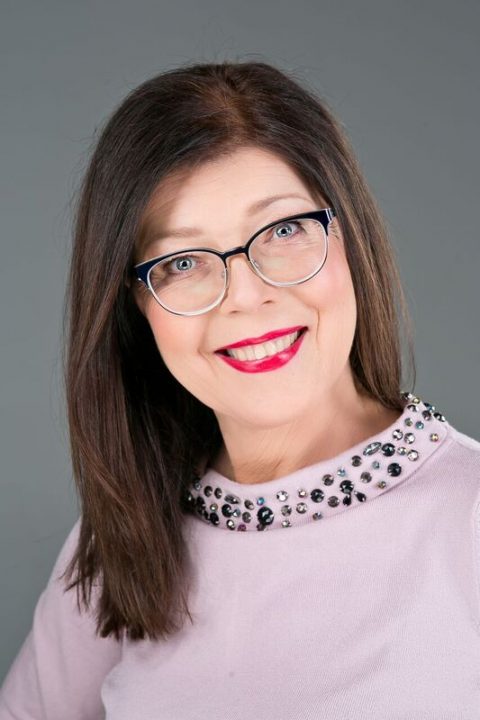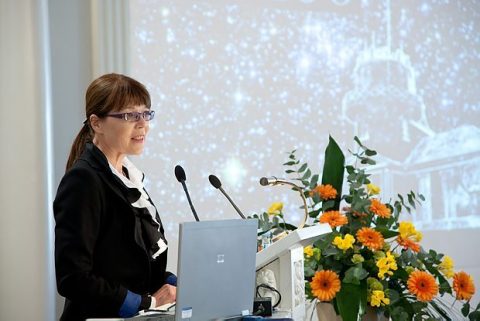Meet Anu Reinart, a director of Estonian Space Research and Technology Center, Tartu Observatory. Her activities include governance of the basic research in the field of astronomy, also collaboration with industry for development of the applications in remote sensing and technology of satellites. The institute is also responsible for the University of Tartu study program related to space as well as for building up Estonian participation in international planetary and space science networks.

Anu Reinart. Photo from personal archive
What inspired you to pursue a career in marine sciences/technologies?
I have really loved nature from my childhood and spent a lot of time in grandparents’ farm. When I went to university the main subject I chose was physics, because for me it meant all the basic order in nature. During studies actually it became less nature and more and more technical, as I graduated as physicist specializing in optics and spectroscopy. It took me several more years till I found that I have to realize my desire to combine my education with activities in real natural environment. It happened that I talked about this with one professor of physics in our University and he encouraged me to make the change and introduced me to his friends working in the field of hydrobiology. Then the amazing world – life under the water opened for me.
What are the main things you enjoy about being a marine scientist/engineer?
I have enjoyed basically two things: field campaigns on the seas and the company of marine researchers. Field work provides a lot of possibilities to visit different locations over the world and to see new and amazing nature. I have been on the coast of Australia and seen the world’s highest lake – Lake Titicaca, also very beautiful coastal areas of the Baltic Sea and hundreds of lakes in my homeland Estonia. People working in this field are very friendly and optimistic – they have to be, as life on the boat is often very modest and sea is rough but one has to carry on with the experiments planned.
What are your main professional achievements? Any/what obstacles?
I have passed all the levels of academic career starting from doctoral student until senior research fellow, and the last seven years research work has been linked with research administration as director of the research institute. I have been member of several advisory boards and evaluation committees. I see the career development as one of the professional achievements. However most important is that I have been able to form my own research group and supervise two doctorate degrees.

Anu Reinart is opening the conference to celebrate 200 years anniversary of space research in Estonia in University of Tartu. Photo from personal archive
Did you have any role models that led you to this career? How did they influence you?
The main role model was my PhD supervisor Dr. Helgi Arst, who introduced me to the international network of marine optics and taught me to work independently and follow my own ideas.
Have you ever had any difficulties in your career due to your gender?
I have had no difficulties due to my gender. I felt sometimes that it is difficult to carry heavy instrumentation and to deploy them into water under bad weather conditions. But always there are helpful colleagues alongside. I had two small kids when I started my PhD studies in Tartu University, but sometimes I was able to take them with me to field, and also my family helped to take care of the children when I had to be away. So I actually do not consider it as a difficulty but just a part of life.
Do you think there is a need for special girls’ support to study marine sciences/technologies?
I don’t think there is a need for special support for girls, but there may be a need for more attraction to all young people to study natural science and technology.
How could they be encouraged to pursue careers in marine sciences and technology?
We, as experienced ones, need to think of how to make this more interesting, more inspiring in general. I guess that engagement to the practical work, international experience, conferences, very good education – so that young people could experience the success and not the limitation of their skills, makes the trick.
Do you think there is a need for special support to retain women in science?
I guess that it is normal to take a break in the career especially due to baby care and, for example, part time job during that period would help to keep the level of competence. I even think that some break to see other options in life or work somewhere else for a while would add new experience. When we talk about returning after a career break – the main issue is funding.
What advice would you give any woman considering science as a career path?
I would suggest to make this choice if the woman is clever and loves challenges in the life – then there is a very open field to learn new skills and to meet new people and then be more competitive in the career throughout life.
What are the most effective way for you to maintain balance of your professional and personal life?
I guess there is no need to keep any balance. Do what ever you feel is important. For me my family has always been most important. I have taken my professional life also as part of my personal life, just I have had different periods (weeks, months, years) when I have worked more and different times when I have spent more time with my family and I am happy with that.
What are your professional and personal dreams?
Professionally I would like to help my students and colleagues to reach their highest competence level. I would like to believe, that my work helps to preserve the nature of the planet Earth. Personal dreams… this is too personal and I do not want to share 🙂